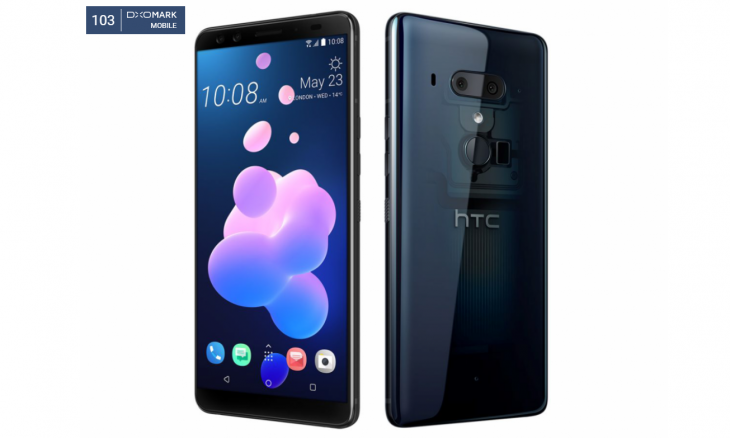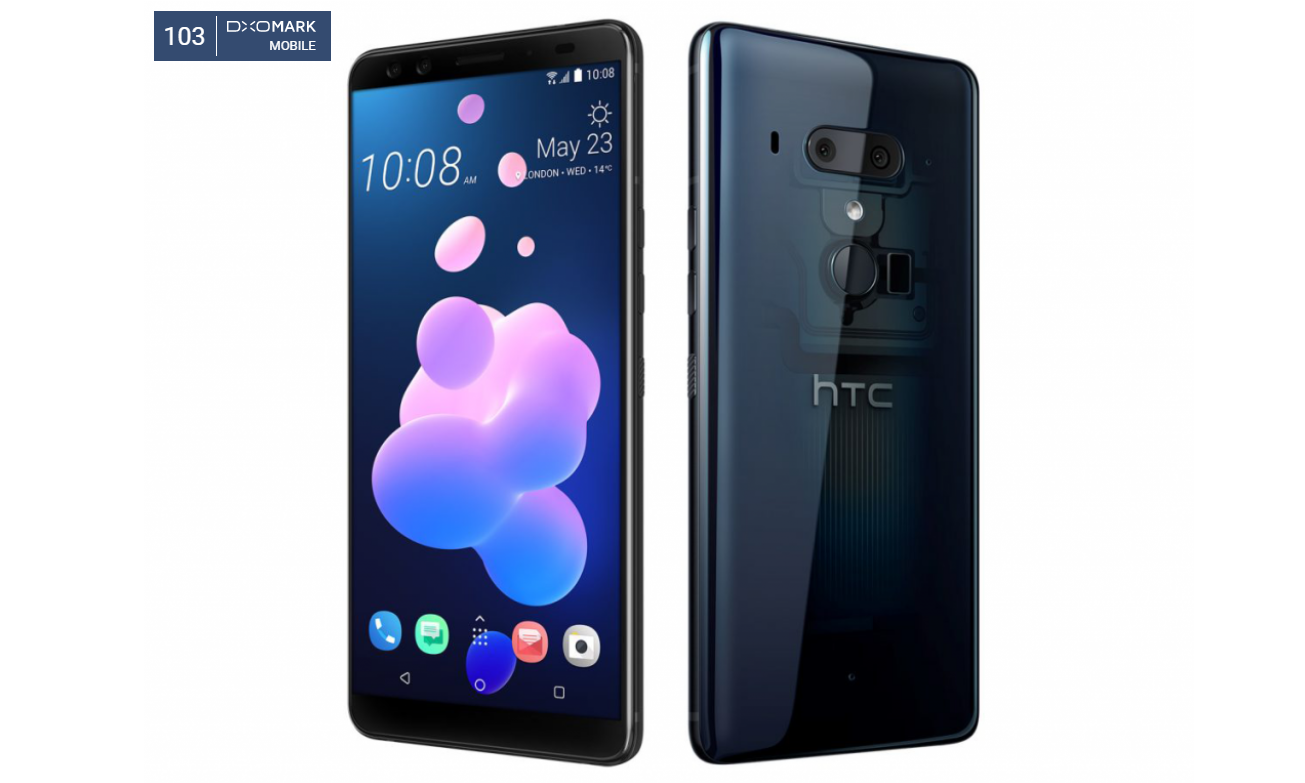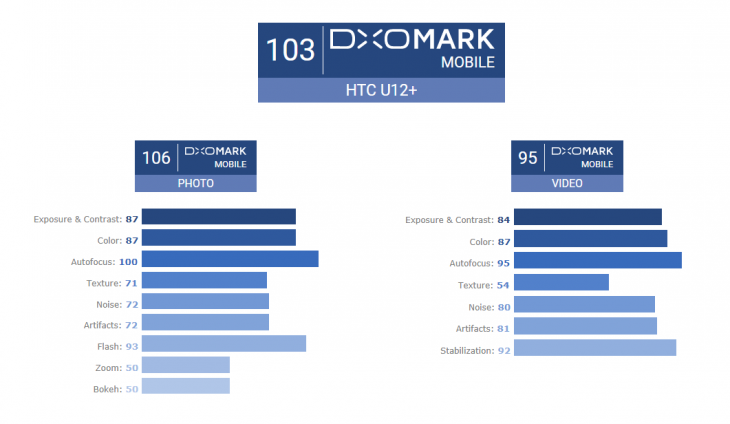
These days a smartphone is only as good as it’s camera. We have seen various camera setups with varying success. After yesterday’s announcement of the HTC U12+ DxOMark have released their smartphone camera rating for it — and it is high.
With the Huawei P20 Pro a very hard act to follow (and the P20 not far behind it) it was always going to be very hard for HTC to make their mark in the smartphone camera world but it seems that they have done it.
The hardware in the HTC U12+ is a great place to start. From our announcement post, HTC’s loaded the U12+ up with four cameras – two each on the front and back. The rear sensor setup consists of 16MP + 12MP with OIS and EIS and the front sensor array sees dual 8MP front cameras that allow real-time bokeh effects on your selfies. the front setup is also used to do facial recognition for the company’s new Face Unlock feature.
Sounds great but how does it perform? According to DxOMark it performs better than any other dual camera setup on the market — 103. Only the triple camera setup of the Huawei P20 Pro scores higher.
For those unfamiliar with the DxOMark score and how it is calculated head on over to the Samsung S9 DxOMark piece and check out the video there.
DxOMark compared the HTC U12+ against various phones including the Google Pixel 2, the iPhone X, and the P20 and it fared well. While it was not perfect, and no camera is at this stage, it excelled in many areas. It’s colour and autofocus were “outstanding” and it obtained “very good results” when it came to artefacts, flash, zoom and bokeh. The overall photo score was 106.
The video score was 95 with accurate exposures, good colour rendering and “excellent” autofocus subject tracking.
DxOMark heaped more praise on the HTC U12+ in their conclusion:
With a new flagship in the shape of the U12+, HTC has done just that, successfully implementing its first dual-camera in some time with aplomb. Given its excellent exposures in most lighting conditions, good dynamic range, a nice compromise between texture and noise, and outstanding autofocus performance, you can be confident that the HTC U12+ will deliver in a wide range of environments. Class-leading optical zoom shots at 2x magnification and an effective bokeh simulation mode also bolster the HTC U12+’s suitability for budding smartphone portrait photographers.
Some notable pros and cons for photos with the U12+ were:
| PROS | CONS |
|---|---|
| Very fast and accurate autofocus | Visible artefacts in HDR images |
| Good detail and texture preservation | Visible noise in low-light images |
| Accurate exposure and wide dynamic range |
The notable video pros and cons were:
| PROS | CONS |
|---|---|
| Effective stabilisation | White balance instabilities indoors |
| Good tracking and accurate autofocus | Overexposed highlights in HDR scenes |
| Pleasant white balance and vivid colour |
Some of the Cons that the U12+ received may well be able to be fixed with software updates and you can be sure that HTC will be working on improving them (especially the HDR minor issues) considering the U12+ will be their only flagship this year.
HTC seem to be off to a good start with the U12+ with a camera that is better than the Pixel 2, the Galaxy S9, the iPhone X and the Huawei P20. Of course you can make up your own mind — there are a lot more examples other than those above over at the DxOMark website — as everyone prefers different things in their photos but there is one thing for sure — the HTC U12+ can take some amazing photos.
While we do not have a HTC U12+ on hand (just yet) to confirm results such as these we do have some exciting plans in place to pit their camera against others in the coming weeks.
At this early stage of its reviews are you interested in purchasing a HTC U12+? What would you like us to test out to help you make up your mind one way or the other?

















